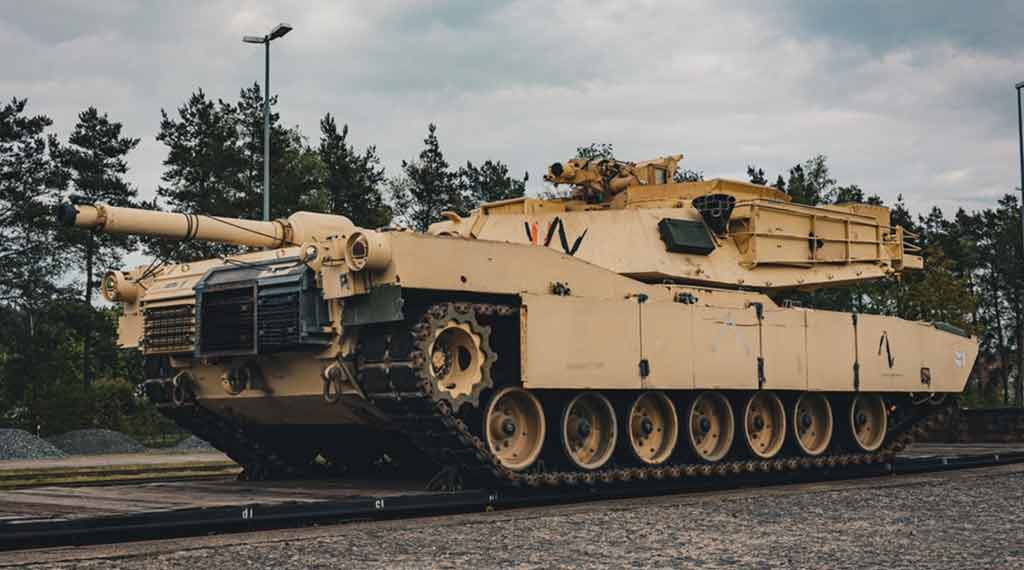
There appears to be a potentially big development in Ukraine focused on a negotiated deal with Russia.
“Ukraine is ready for negotiations and a peace agreement,” Ukrainian Defense Minister Oleksiy Reznikov said – “if Russia changes the previously declared goals of the special military operation.”
His statement came after Ukrainian President Volodymyr Zelensky visited Kherson on June 8th to be updated on the ongoing offensive in the Zaphorize region.
No doubt Zelensky got news that he did not want to hear: The Ukrainian offensive is not going well and Ukrainian army losses have been heavy. The Russians have managed to knock out many Ukrainian tanks, including French-supplied AMX-10s and three front-line German Leopard A-6 models (not the A-4 models transferred from Poland).
The Russians also destroyed the critical Hensoldt TRML-4D AESA radar, part of the Iris-T air defense system that was brought up in range to support Ukraine’s forces in the offensive. Its neutralization has given Russian forces command of the air above the battlefield.
We don’t know much about Russian casualties or material losses. We do know that what may have been Ukraine’s best-modernized brigade – the 47th Mechanized, trained in Europe by NATO, equipped with night vision, thermal imaging gear and infantry fighting vehicles including the US Bradley, and backed by a massive amount of artillery including HIMARS – failed to gain ground or roll back the Russians.
It is unclear how much overall damage was done to this brigade, but other units have been mauled – so much so that some battalions refused to fight.
Ukraine still has a very large force it can bring to the battle, so the offensive is only in its early stages. But the Russians also have a huge reserve force, perhaps 200,000 soldiers, that they are starting to deploy.
Zelensky can’t openly ask the Russians for a deal, as that would destroy his relationship with the US and other NATO countries and weaken him in Ukraine.
The question is, does Reznikov mean that his statement requires the Russians to agree in advance of negotiations to change their objectives? Or does he mean that the Ukrainian going-in position is that a deal will require a change in Russian special military operation objectives?
If he is asking the Russians to change their position in advance of a negotiation, that will be rejected out of hand. So far, there is no comment from the Kremlin and it is likely that Russian officials are trying to ascertain what Reznikov means and whether he actually has the authority to negotiate.
Recently Zelensky aimed to fire Reznikov for corruption. In heavily censored Ukraine, stories were leaked on Reznikov’s dirty hands. Then, mysteriously, all was forgiven. Thus the relationship between Zelensky and Reznikov has to be difficult. Is Reznikov speaking for the rest of Ukraine’s military leaders? Was Zelensky afraid of a potential coup if he followed through with his corruption threat?
Has Reznikov moved out on his own? That is one of the propositions the Russians need to test.
Russia can try and smoke out whether Reznikov is serious – and capable of negotiating – by floating some ideas of their own focused on their special military operation objectives. This can be done through public channels or through intermediaries or trusted go-betweens.
The last time there were serious negotiations between the two sides was when former Israeli Prime Minister Naftali Bennett shuttled among Ukraine, Russia, Germany and France. He says he was close to working a quid pro quo when his effort was undermined by the Biden administration, forcing Zelensky to call off any deal.
“The appearance of U.S. Department of Defense (DoD) visual information does not imply or constitute DoD endorsement.”
- Trump and Ukraine: what Russia wants, what Trump could do - November 8, 2024
- North Korean troops in Kursk could backfire on Moscow, Pyongyang - November 1, 2024
- Secure enclaves: bad CHIPS Act idea wasting billions - August 12, 2024
